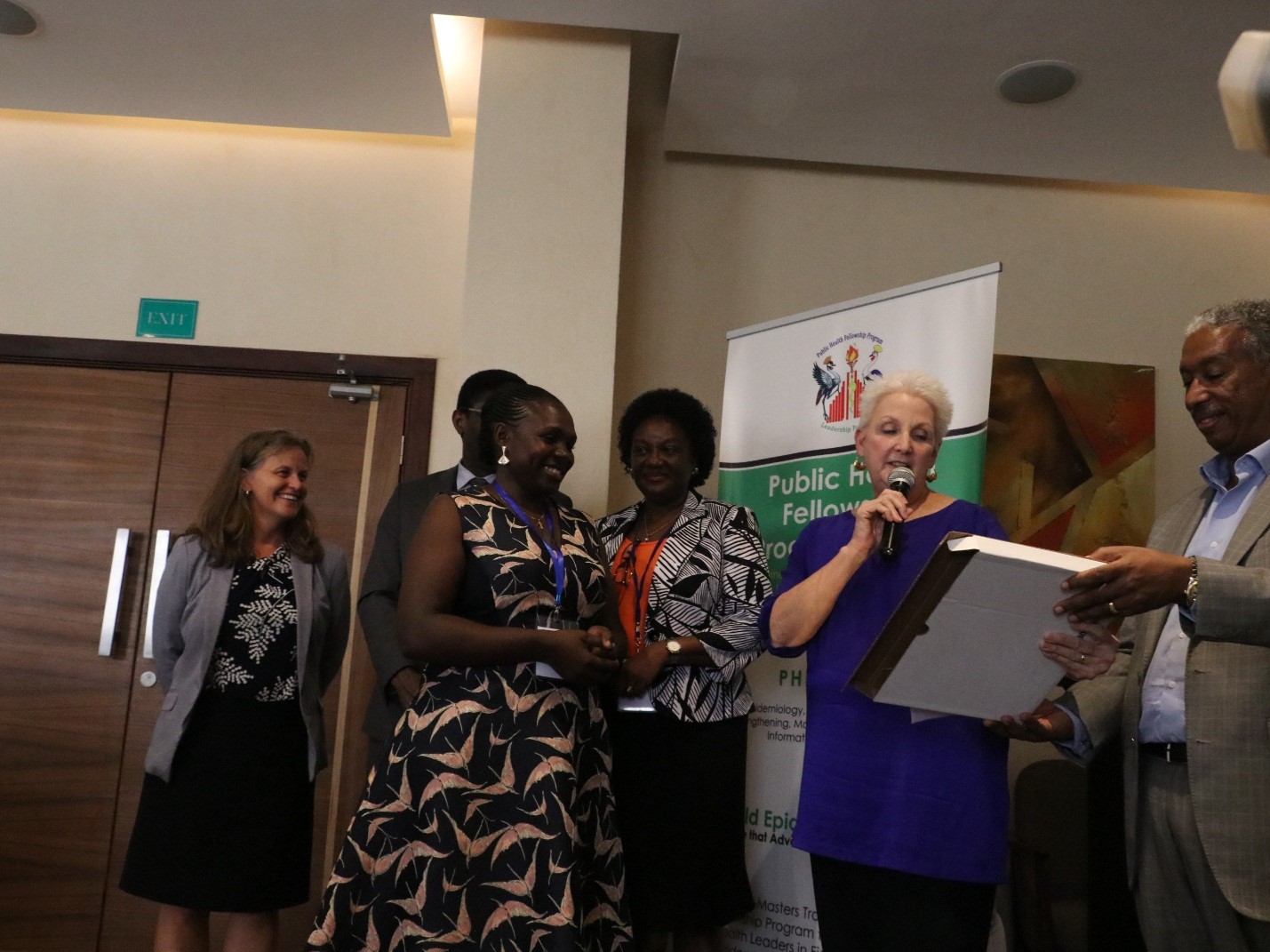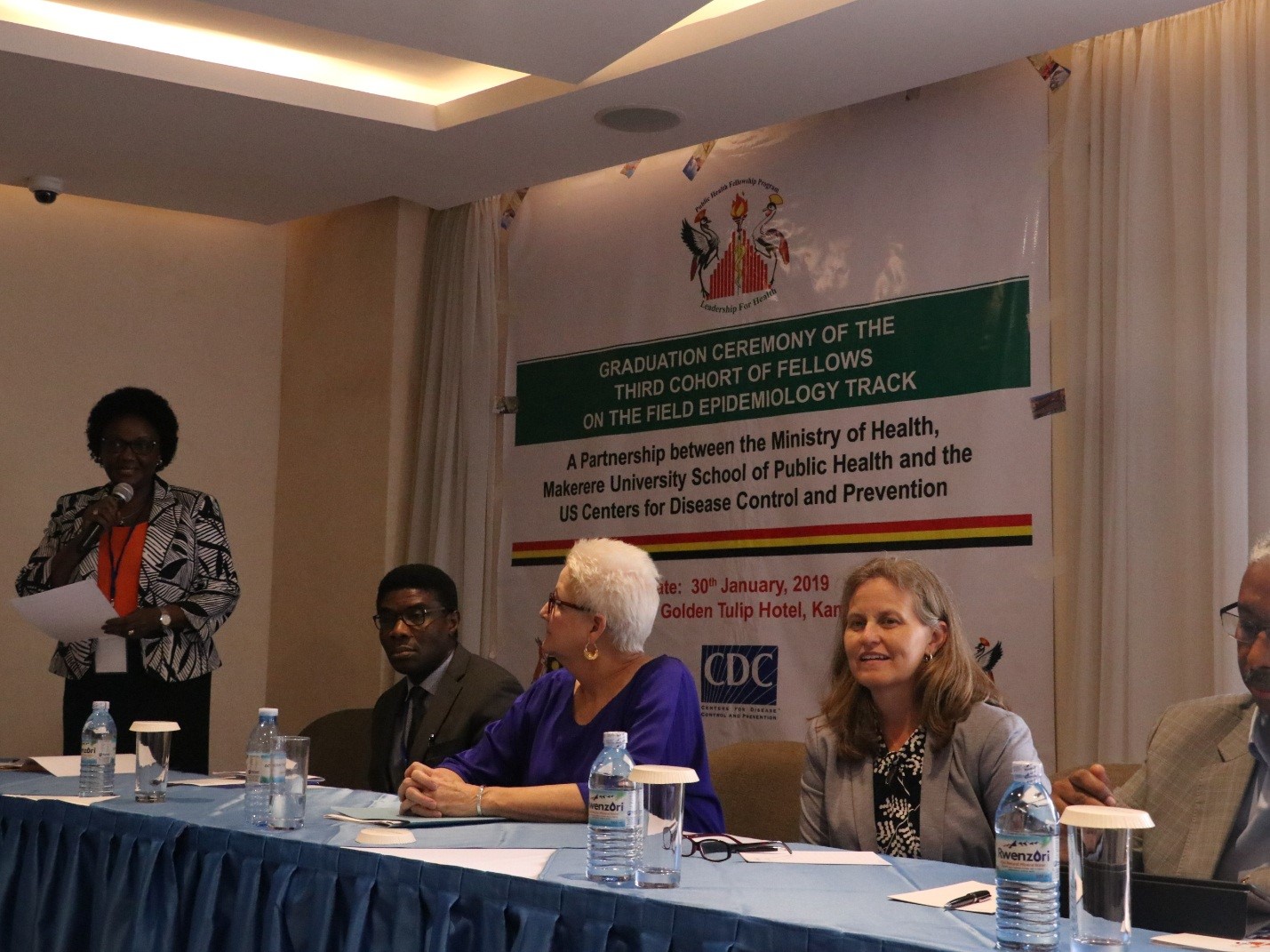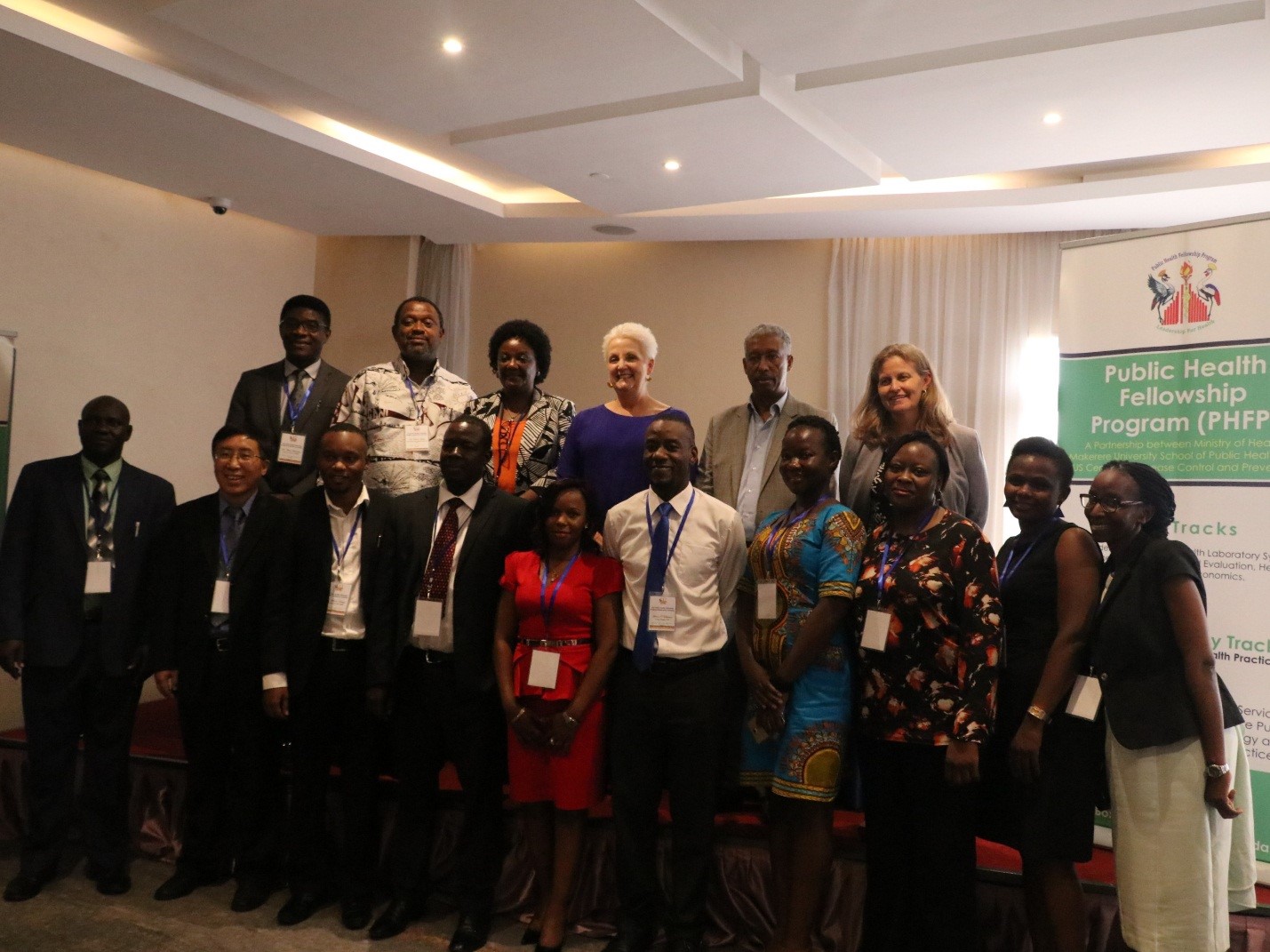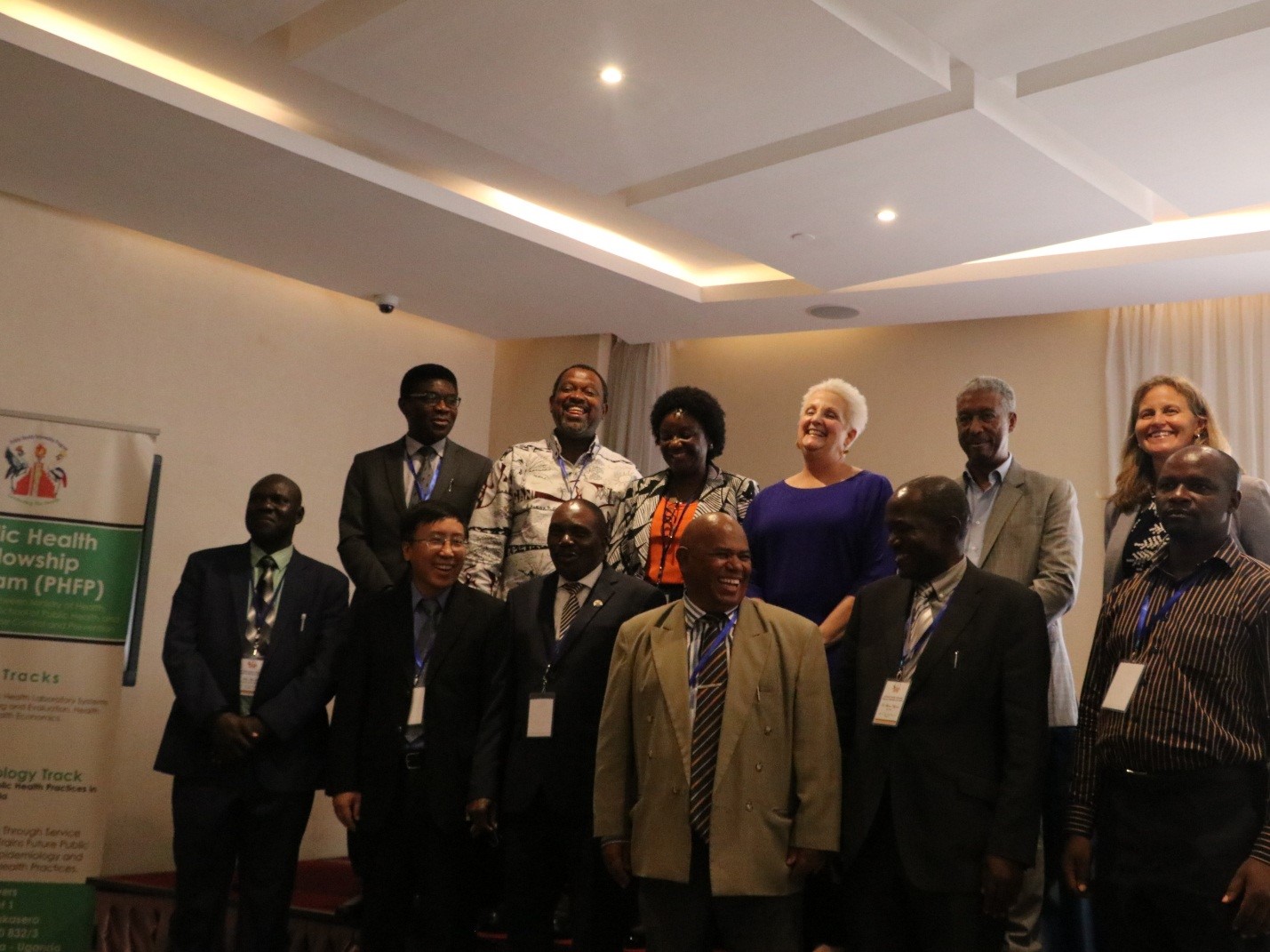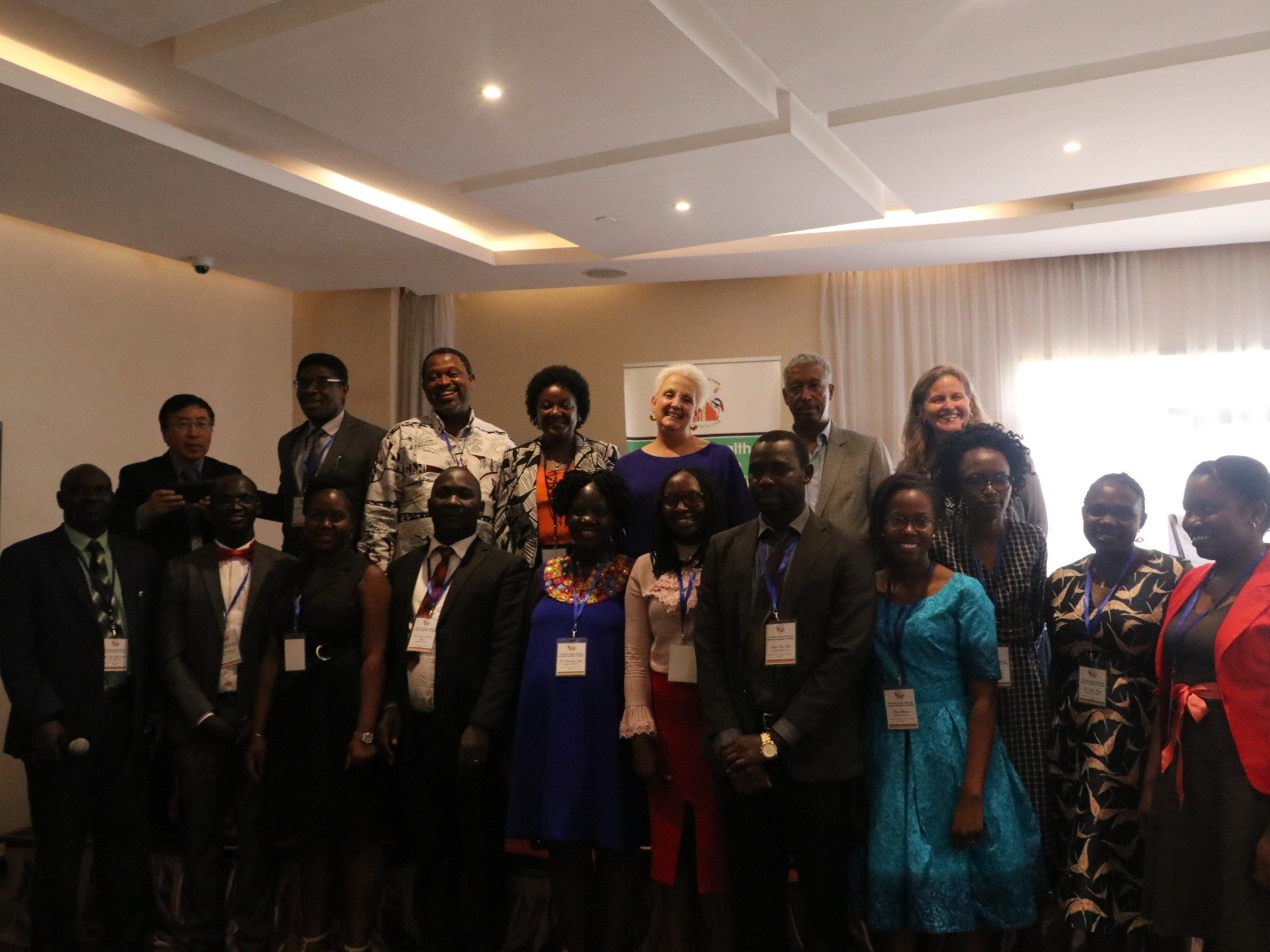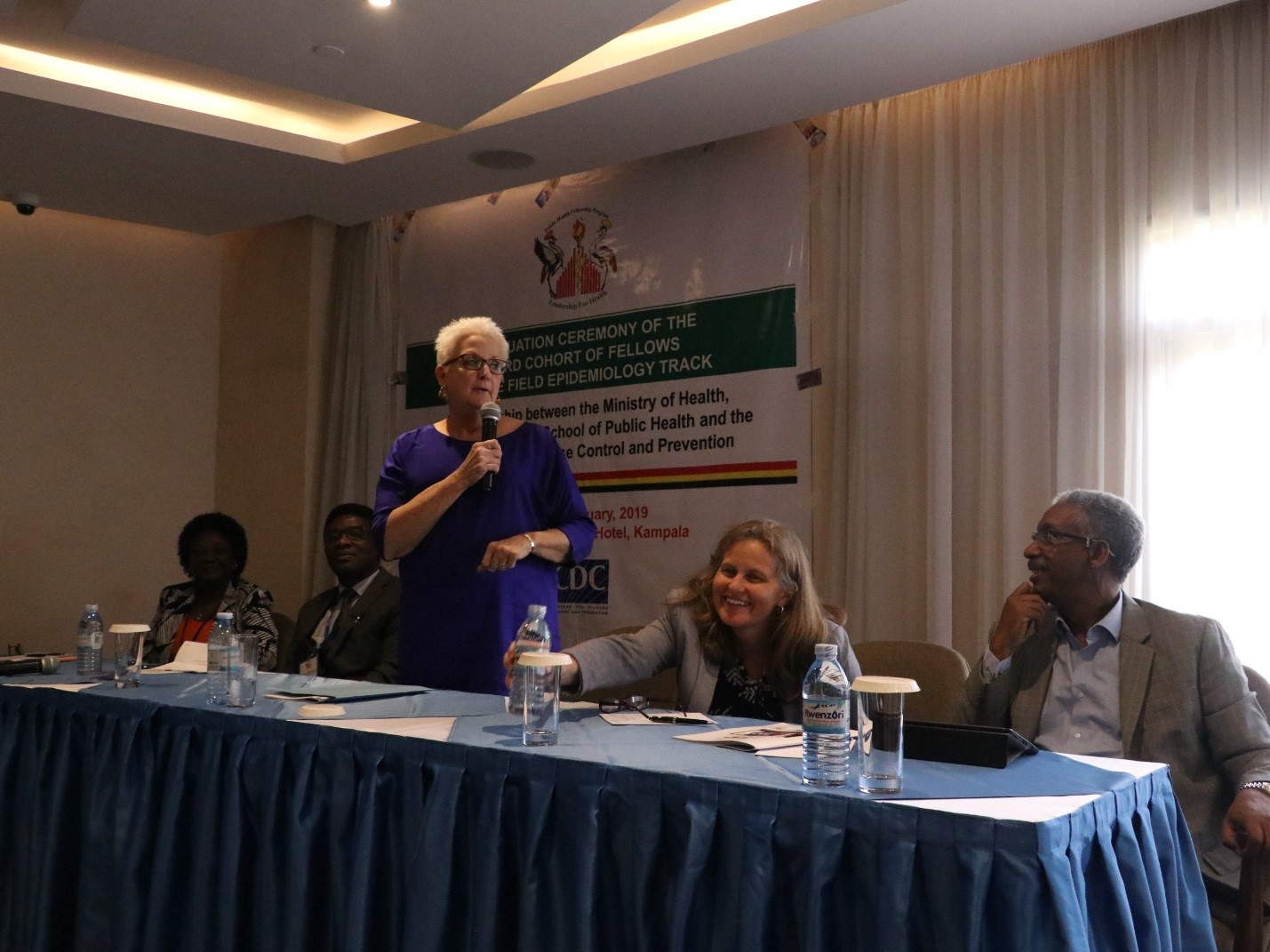
(H.E Deborah Malac, speaking at the graduation ceremony of 11 students in public health)
The US Ambassador to Uganda, HE Deborah Malac, has said communities handle outbreaks better when they have locally trained personnel amongst them to manage the outbreak.
She told the audience about her experience in Liberia when the Ebola epidemic broke out and the country had no internal capacity to handle the outbreak. “The Liberians were so inspired when the Ugandans came in to help out with the outbreak. I saw first-hand the purposes of investing in capacity. There is no substitute for people in that community being able to go out and help their community because they understand that community. The community is capable when they are trained,” she said.
The US Ambassador was speaking at a function where the Ministry of Health was graduating 11 students from the Public Health Fellowship Programme (PHFP). This programme is a partnership between Makerere University School of Public Health (MakSPH) and the Ministry of Health and it is funded by the US Centre for Disease Control and Prevention (CDC).
Her Excellency Malac also informed the audience that her country is committed to working with countries to help them develop the capacity. “We cannot commit 100% to what our partnership will look like but we take public health very seriously,” she said.
Fellows on the rigorous two-year fulltime programme are admitted on the basis of having a masters’ degree in a medical background. Dr. Innocent Nkonwa was among the graduands from the prestigious Public Health Fellowship Programme (PHFP). In a conversation during their graduation at Golden Tulip Hotel in Kampala, the doctor had only wonderful things to say about the fellowship.
“I have gained skills in responding to public health emergencies and emerging outbreaks. I was part of the team that responded to the Marburg outbreak in Kween District. I have also been part of the team that has been responding to the sporadic cholera outbreaks in the country among other skills. I also learnt that some alerts to disease outbreaks come through rumours or the least expected sources like a non-medical person or through a religious leader. I have learnt that it is important to go and verify,” the Dr. Nkonwa, who also has a Masters in Obstetrics and Gynaecology and a Masters of Public Health Leadership.
Just like Dr. Nkonwa, all the other 10 graduands had only wonderful things to say about the programme. Dr. Susan Kizito who won the prestigious award of the Most Outstanding Fellow said joining this fellowship was the best career decision she has ever made. Dr. Kizito is a medical doctor who has a Masters in International Health from the Institute of Tropical Medicine and International Health in Berlin. She worked in HIV/TB care for five years in Nsambya Hospital before joining the two-year fellowship programme.
“I have been able to publish two scientific papers in influential papers and I have 7 in the pipeline. The programme pushes you to achieve and it is the best decision I have made in my professional life.”
Speaking at the function, Prof. Rhoda Wanyenze, the Dean of MakSPH said she was so proud of the programme because it continues the relationship that MakSPH has with CDC and Ministry of Health. More so, the fellowship has had tremendous achievements; in 3 years, 100 investigations have been carried out and 250 projects have been implemented.
“We need to track all these findings so that we can get the due recognition that this program deserves,” Prof. Rhoda said.
She thanked the stakeholders of the programme who include Uganda Virus Research Institute, AFENET (Africa Field Epidemiology Network), World Health Organisation and Ministry of Health.
PHFP staff pose with the guest at the graduation. Top row, third right, is the US Ambassador to Uganda, HE Deborah Malac. Next to her on the left is Prof. Rhoda Wanyenze the Dean of Makerere University School of Public Health.
We are also thankful that we have had very dedicated drivers. We have not had any accidents from all the projects done yet it’s a lot of work, the Dean said. She said also appreciated the mentors n the host institutions. A graduate Fellow herself from the CDC Fellowship, Prof. Wanyenze congratulated the gradunads and encouraged them to ‘keep committed, stay focused and serve with a difference.’
Representing the Ministry of Health at the graduation Dr. Patrick Tusiime, the Commissioner of Health Services (National Disease Control) at the Ministry of Health and the Co-Director of PHFP congratulated the graduands and noted that they have positively added to the numbe of experts in the country in the area of emergency responders.
Dr. Patrick Tusiime, second left top row, the Commissioner Health Services and the Program Co-Director of the Public Health Fellowship Program. He was posing with the dignitaries at the graduation and other mentors of the Fellows that attended the function.
The Executive Director of AFENET, Dr. Chima Ohuabunwo, was present at the function as well said that much as the Ministry of Health might not be able to retain all the trainees, they can be called upon to serve in the neighbouring countries or any other part of the continent as the need arises.
Dr. Yonas Tegen Woldemariam, the WHO Country Representative noted that Africa is having the most severe of outbreaks with an average of 250 outbreaks per year. He then told the graduands that Africa will be looking to their expertise in becoming more efficient and effective in responding to outbreaks. Encouraging them to not to stop at the investigations they did, he said, “Those conclusions are not just scientific. You have to look at their implication on policy and on saving lives.”
The highly-skilled graduands who spent two years at the fellowship did research in a number of emergency response situations like food poisoning, snake bites, mental health and meningitis among many other areas.


